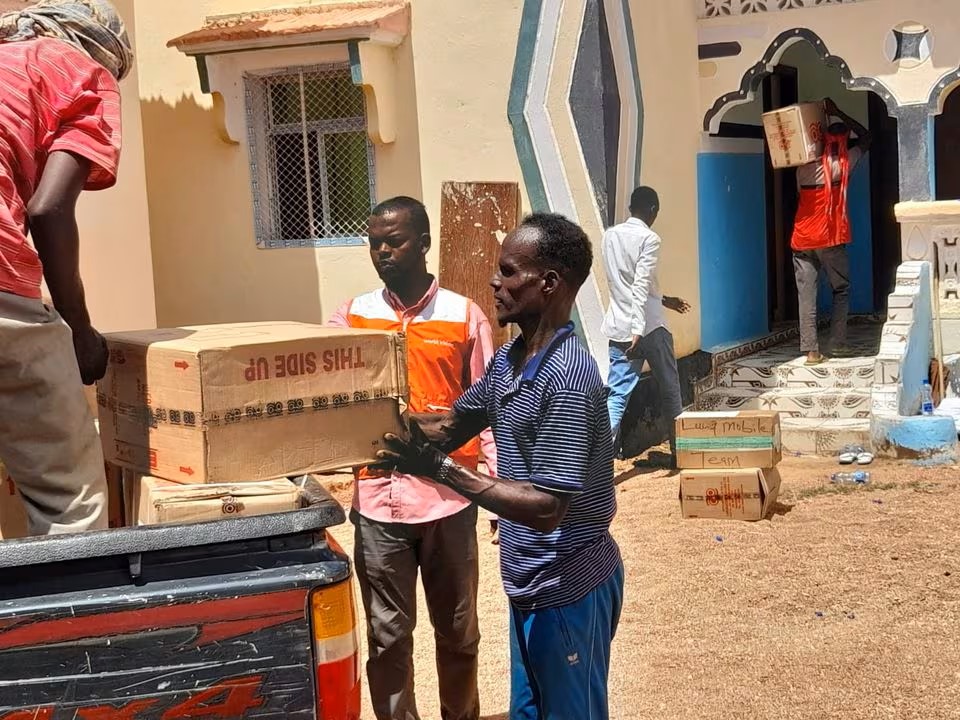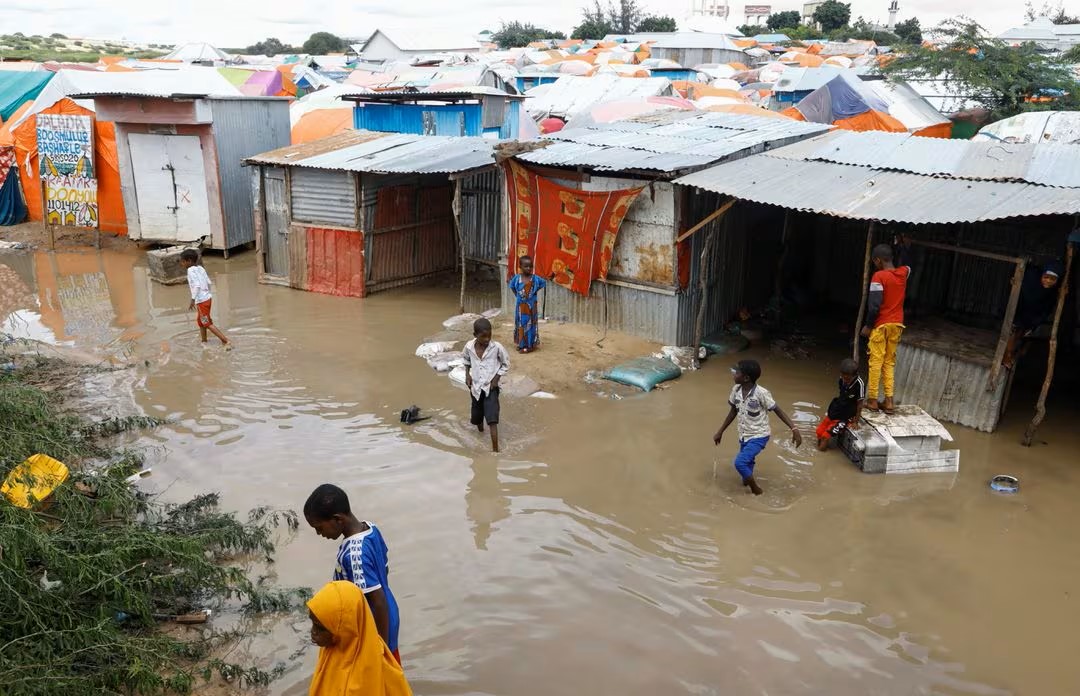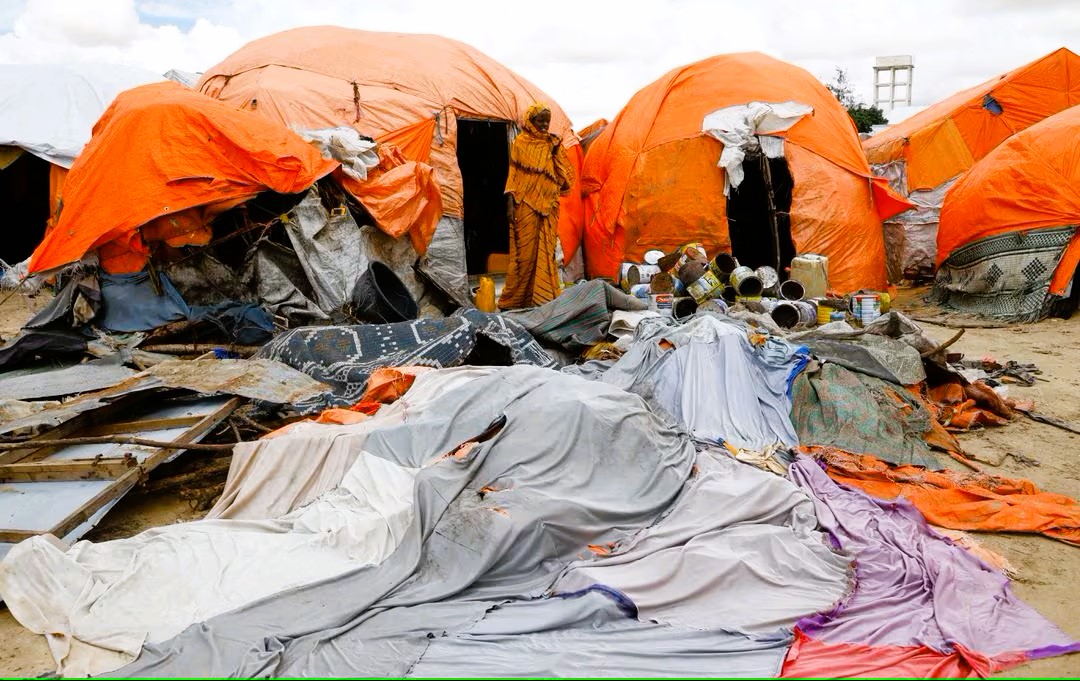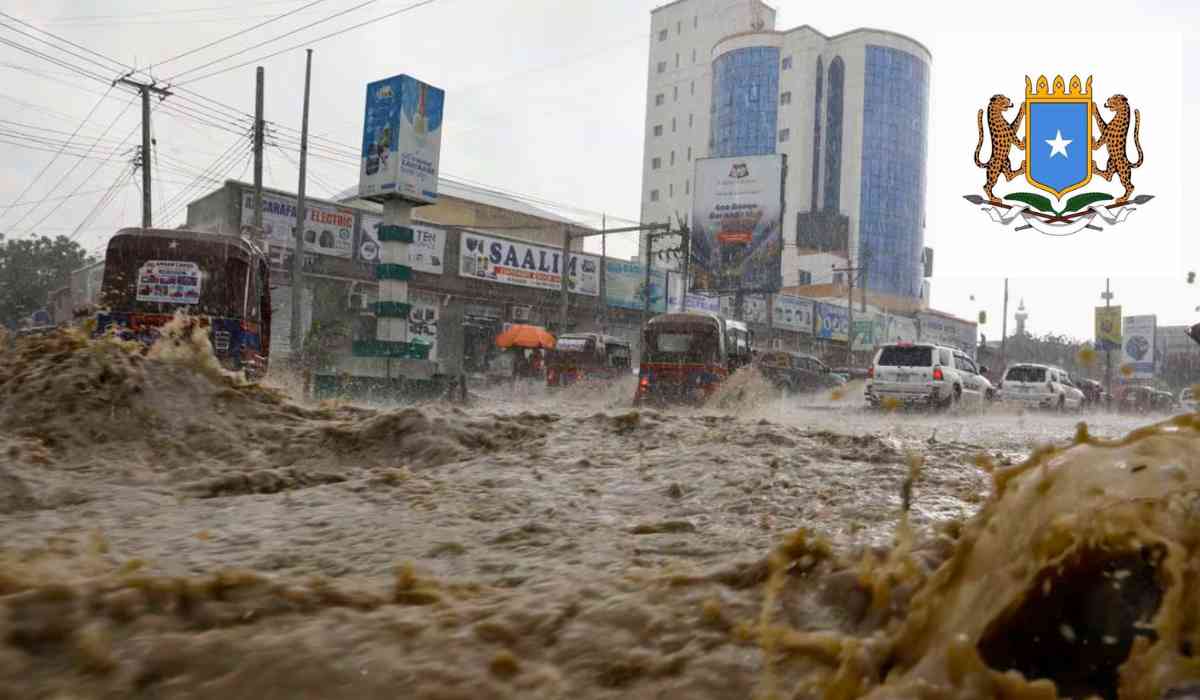Unfortunately, Somalia is currently facing a devastating situation with the most severe flooding it has experienced in decades. Tragically, this has led to the loss of 29 lives and the displacement of over 300,000 residents. The National Disaster Management Agency has reported this catastrophic event, which occurred after a prolonged period of continuous heavy rainfall that has affected numerous towns in East Africa.
The authorities have responded promptly and are tirelessly working to rescue the countless individuals trapped in the floodwaters. This unfortunate event occurred shortly after the region experienced its most severe drought in the past forty years, worsening the already critical circumstances.
Hassan Isse, the Managing Director of the Somali Disaster Management Agency (SOMDA), expressed his concern in a polite manner, noting that the current situation is the most severe in decades, surpassing even the floods in 1997. Isse foresees the possibility of an increase in the death toll and the number of displaced individuals, as many are still trapped by the floodwaters.

Mohamed Farah, a local elder in the city of Baidoa, southwest Somalia, expressed his disbelief, saying: “I do not remember such floods in my life. People continue to evacuate in search of higher ground.”
At least 2,400 people were cut off from the outside world in the town of Ruku, where the Juba River flooded. Ahmed Noor, a trader from Ruku, described the dire situation: "Ruku is surrounded by rivers and is under threat of flooding. People continue to flee the town. Some are still trapped. "The store was washed away."

The neighbouring countries of Kenya and Uganda are currently facing the challenges caused by floods. In Kenya, unfortunately, there have been reports of at least 15 fatalities, while in Uganda, a bridge has been submerged, causing disruption to an important road connection.
Climate analyst Nazanine Moshiri suggests that the convergence of El Niño and the Indian Ocean Dipole has played a significant role in triggering this regional deluge. These climate patterns, which have an impact on ocean surface temperatures, lead to a higher-than-usual amount of rainfall.

Moshiri highlights the compounding impact of the flooding caused by the previously damaged soil resulting from an unprecedented recent drought. Additionally, the presence of years of conflict and the activities of the al Shabaab militia add to the existing challenges in constructing flood defences and fostering resilience, thereby making it a multifaceted and expensive undertaking.
Scientists emphasize the contribution of climate change to the escalation of extreme weather events. Consequently, African leaders have presented suggestions for implementing new global taxes and implementing reforms to international financial institutions, with the aim of strengthening endeavours in tackling climate change. This critical situation serves as a powerful reminder of the pressing necessity for global measures to confront the escalating climate crisis.
Image Source: Reuters
Ⓒ Copyright 2023. All Rights Reserved Powered by Vygr Media.
























